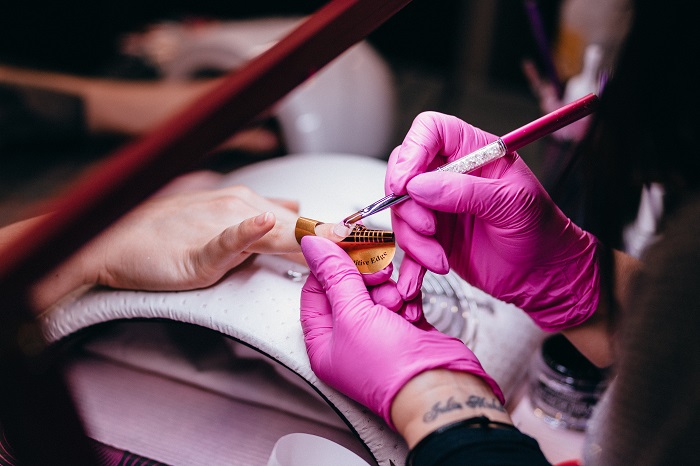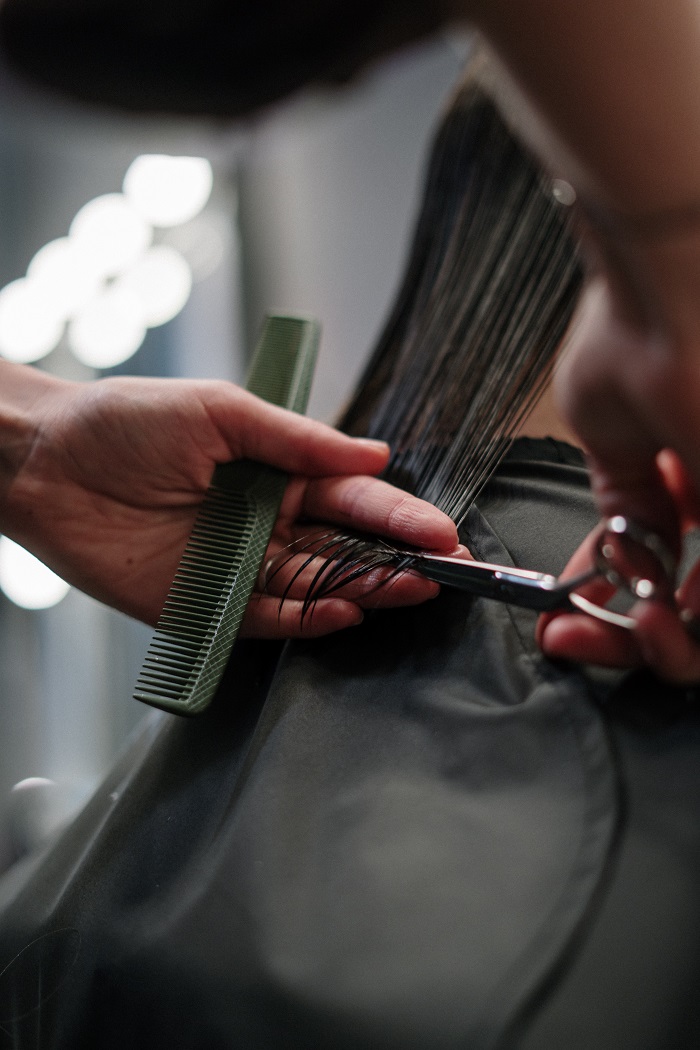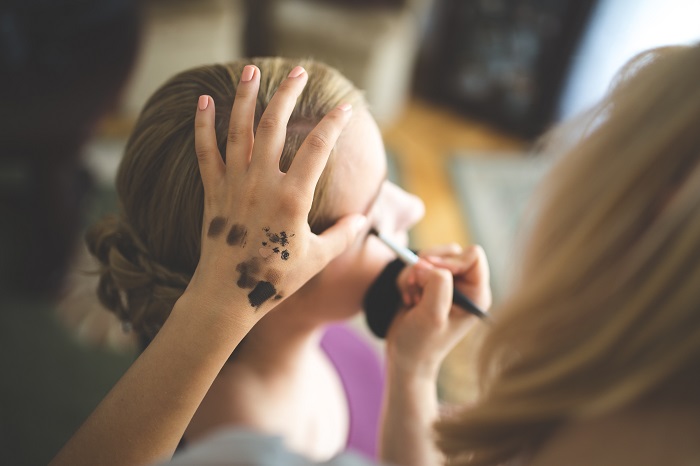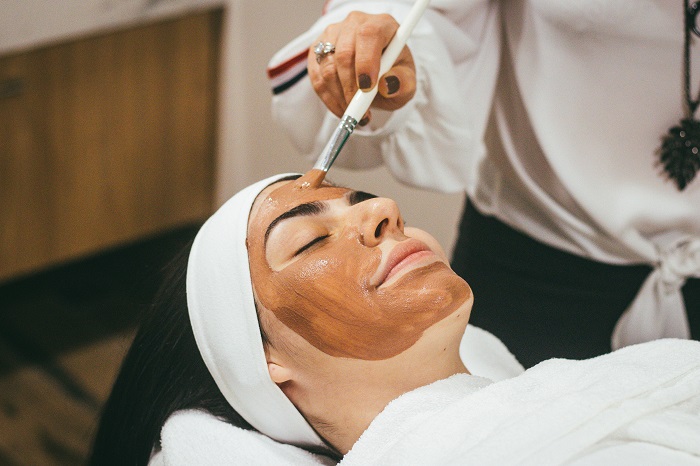Guest post by Samantha Higgins
The COVID-19 pandemic has made many aspects of life much more challenging. From getting your groceries to getting your hair colored, many people are struggling to function safely in the world while still feeling good about themselves. To maintain a positive body image, adjustments must be made.
Risks of Physical Contact
Make-up artists, nail technicians, and hair stylists must work in close proximity to those they serve. There’s simply no way to manage the work without skin to skin contact. Many who need hair, skin, or nail care have had to go without, but this is hardly sustainable.

Thankfully, those in the beauty industry are fully aware of the need to mask and glove, and may even need to self-quarantine after a possible exposure. Luckily, these creative professionals have excellent problem-solving skills. After shutdown, patterns of service are being established and appear to be working.
As the virus progresses through our society, many in the beauty industry are trapped in a waiting game. Their skills are still needed, but the risk of exposure is worrying to many of their clients.
Travel-Related Concerns
Many who are at greatest risk of a life-threatening reaction to the virus are sheltering in place. This choice protects them from exposure, but makes a trip to the beauty salon for their standard round of care nearly impossible.

For those most at risk, many salons are offering extended hours, extra cleaning confirmations, and a texting system that allows the next client to wait in their car instead of being exposed to close contact with strangers. While the beauty business certainly took a terrible hit in early 2020, indications are that the industry is slowly returning and is on a trajectory for normal activity in the 1st quarter of 2022.
The Need to Function Without a Mask
Putting make-up on someone else’s face obviously requires the removal of the mask. In addition, cosmetology professionals struggle with maintaining a clear visual field. Warm water for a shampoo, hot water for hand and nail care, and the moisture in their breath can all increase the risk of not being able to see the person you’re taking care of, especially if the stylist wears glasses or is working with a face shield.

To reduce moisture in the working space, tools including extra fans and a lower air conditioning setting may be of help. However, risks of virus spread through HVAC systems must also be considered, particularly in large shared spaces of salons in strip malls and other facilities that include shared air through the space.
Many beauty professionals may find that their older clientele simply put off care until the client feels safer getting out and about. This lack of confidence in safe travel and skin to skin contact has severely damaged the service portion of the beauty industry.
A Drop in Product Sales
In addition to the risks of personal contact and travel, many users of beauty products have not left their house in a while, so beauty products are not getting used up. The drop in product sales is actually more than half in some regions, though international trends indicate that there has been a surge in product purchases as stores have opened. A curious point is that, while shoppers are picking up beauty products while doing their ordinary shopping, many are not returning to specialty stores in malls.
Dermatologists and Cosmetic Surgeons
For those in need of dermatological care, protocols found in all medical clinics will apply. The incoming patient will be checked for elevated temperature, required to answer several questions about their current state of health, and then treated by masked and gloved professionals.

For those seeking plastic surgery in Miami, finding a facility where they can have the procedure without risking COVID-19 exposure is worrying. For surgeons who can do procedures in-facility, clients will feel safer with the reduced exposure. However, for clients who need a more involved surgery in a larger healthcare facility, there is a strong impetus to delay the procedure.
The pandemic has limited the ability to travel, to meet face to face, and for many, to afford beauty products and treatments. This industry will likely not rebound quickly, and both those selling the product and offering skin to skincare will continue to struggle. Patients seeking cosmetic surgery will be likely to go ahead with in-office procedures.
